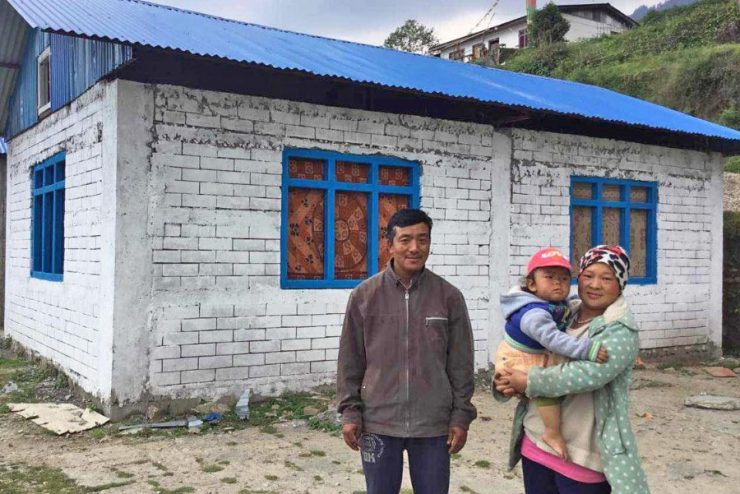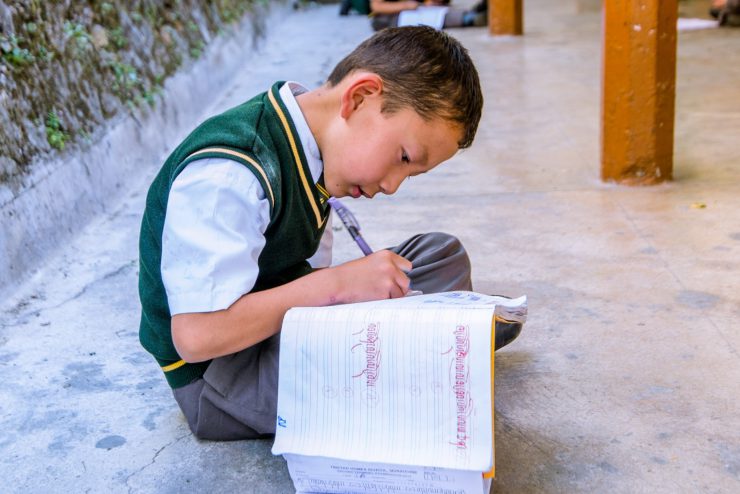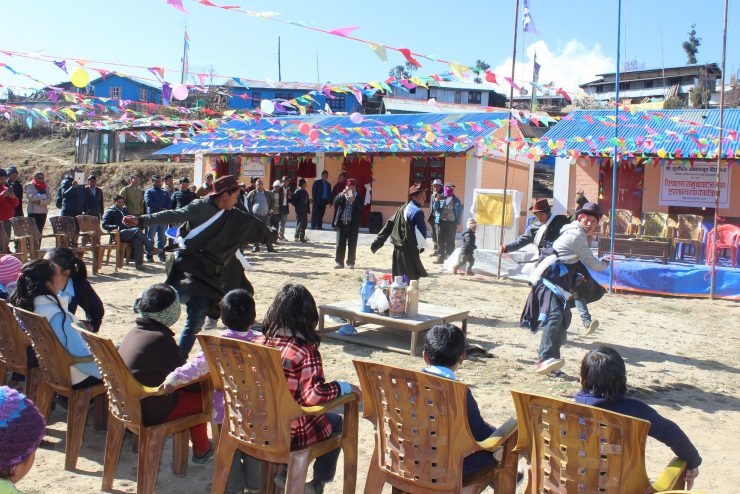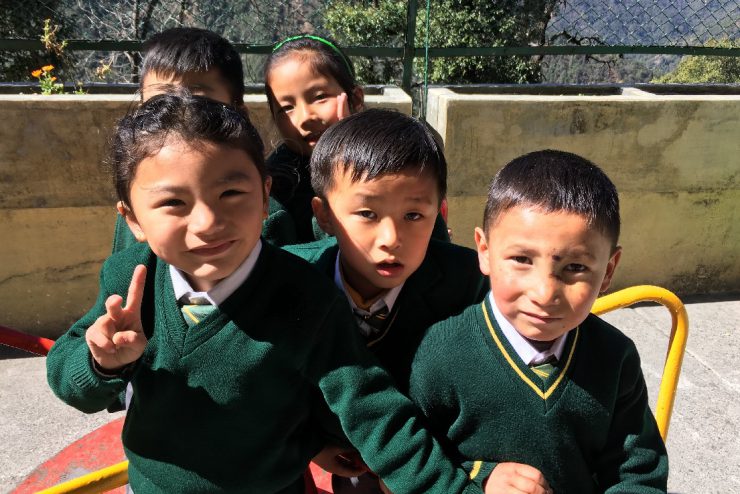Since 2007, Tibet Relief Fund has proudly supported the lifesaving “Help on Hand” project in Chandigarh, north India, set up by a remarkable young woman, Tsering Dolkar. Often referred to as “the Tibetan Mother Teresa”, she works tirelessly to help Tibetan patients at Chandigarh’s hospitals – funding treatments, accommodating families, explaining and translating complicated medical procedures and giving much needed reassurance and trust.
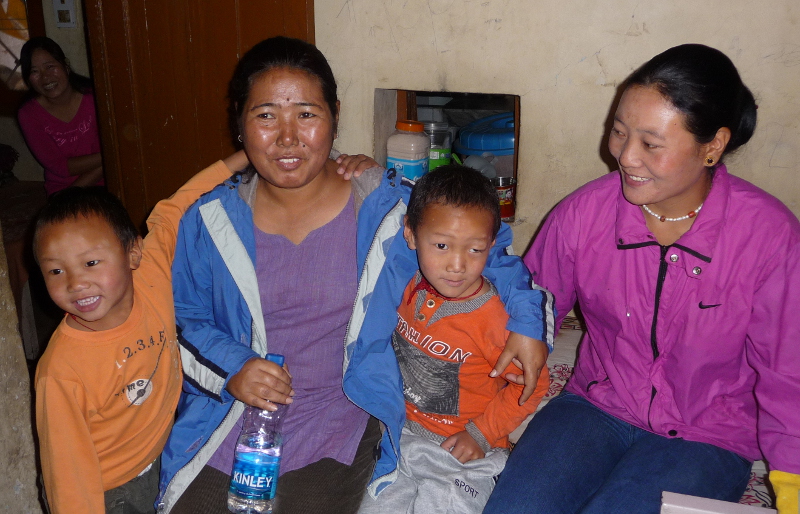
When Tsering Dolkar first arrived in Chandigarh, she noticed the lack of care and resources for hundreds of Tibetans arriving for treatment at some of India’s most renowned hospitals. In 1995, increasingly concerned about the lack of support, she gave up her studies and dedicated herself full-time to caring for these patients. Over the past 15 years she has provided vital help and assistance to hundreds of Tibetans through her “Help on Hand” project.
Now, she has been joined by her sister Lhakpa Dolma and former patient, Passang Dolma. All three work tirelessly seven days a week to ensure patients have round the clock care in a four bedroom house in a leafy suburb of Chandigarh.
Many Tibetans, often with life threatening illnesses, have travelled thousands of miles from southern India, Nepal and even Tibet to receive treatment. However, once they arrive, patients often have nowhere to stay, struggle to understand medical staff and have no family members or friends nearby to help them. Their needs are all too often overlooked, but Tsering, supported by Tibet Relief Fund, makes sure these patients receive the vital care they need.
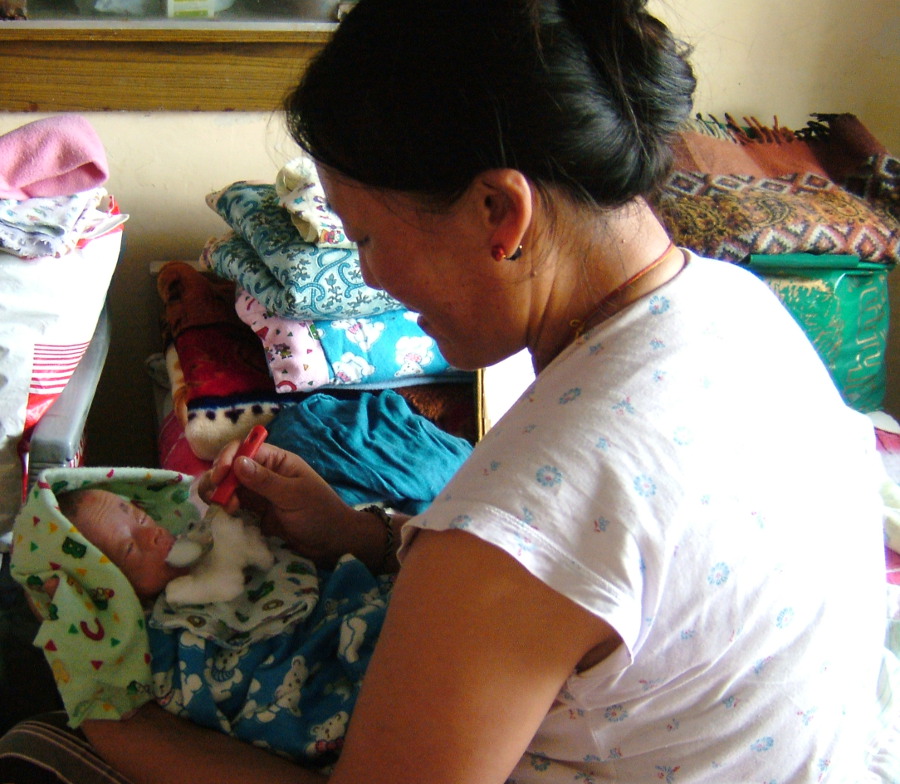
Patients range from nine-month old Tenzin Kunsal, who was born six weeks premature weighing only 1.5kg; to 85-year-old Sonam Lhazom, who suffered heart problems. Both had endured an arduous six-hour car journey along the bumpy and twisty roads from Dharamsala in order to receive treatment.
Nearly a third of patients come to Chandigarh to receive treatment for hepatitis; other major illnesses include various forms of cancer such as lung, bone, prostate and throat, heart and digestion problems, as well as some cases of HIV.
“Help on Hand” provides accommodation, transportation to and from the hospital, help making appointments, interpreting between doctors and patients, explaining special diets and medication, collecting prescriptions, providing emotional support and arranging funerals as and when necessary. Once patients have returned home, Tsering Dolkar keeps in regular contact to ensure former patients keep taking their medication and attend follow-up appointments. For those who live far from Chandigarh, “Help on Hand” will post additional medicine so patients don’t have to make long, arduous journeys back. This is particularly useful for patients who have travelled from Tibetan settlements in south India, Nepal and Tibet.
The four room accommodation can house up to 12 patients at once. The length of stay varies from case to case, but can be anything from a couple of days to several months for long-term treatment.
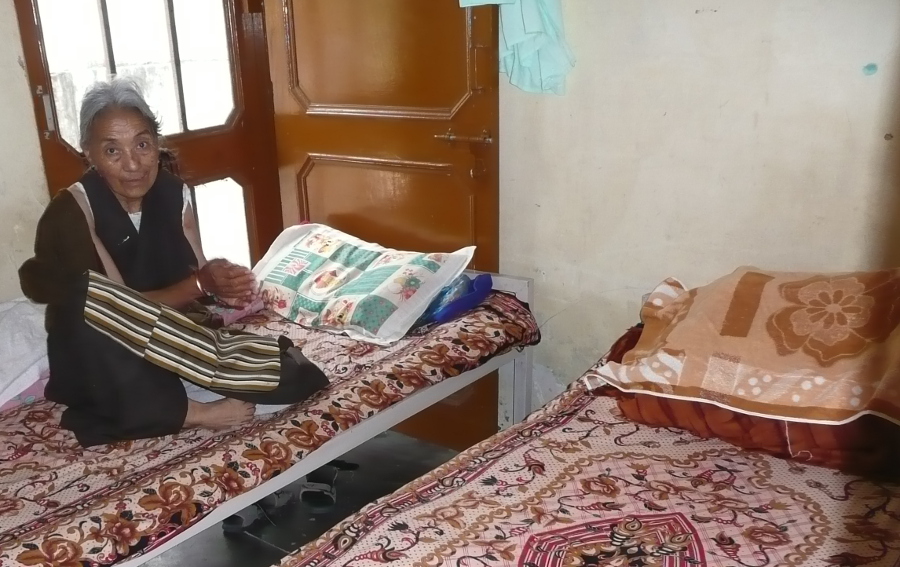
The project also has a small emergency fund to pay for vital medical treatment and medication should patients be unable to afford them. This fund provides vital support for Tibetans such as Lhamo Dolkar, who earlier this year was able to receive medication for recurrent epileptic seizures. Like so many, Lhamo was unable to afford this simple treatment. In the last six months alone, the fund has given grants for walking sticks, ultrasounds, MRI scans and blood tests. Such simple help has transformed the lives of hundreds of patients.
Over the past three years, Tibet Relief Fund’s annual grant has assisted many Tibetans in dire need by helping diagnose, counsel and fund treatment for people with HIV, TB and hepatitis. One monk from Drepung Monastery in south India was diagnosed with severe hip joint TB. Our funding paid for a complete replacement of the affected hip and he was able to return to his true home in Tibet.
Among others helped by our grants are 71-year-old monk, Ven Tashi Tsering who has severe diabetes and poor eyesight – without daily insulin injections he would suffer chronic renal failure and possible blindness, and Mrs Choezom, who had major surgery following an aortic aneurism and must now take medication for life. Without Tsering Dolkar’s amazing work and your support, these and many others may have faced a different future. But, as Tsering Dolkar says; “We still have so many other patients.”

